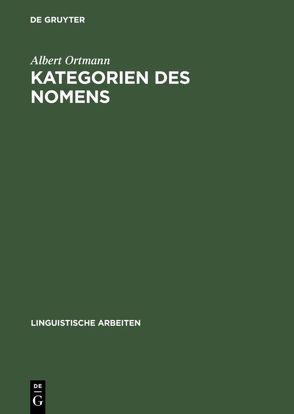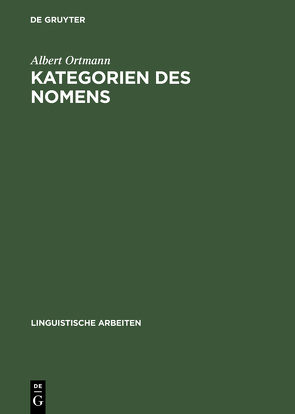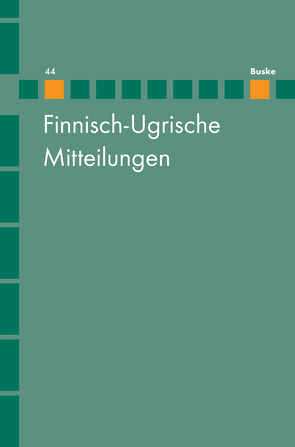
Abstracts
Originalia:
Josefina Budzisch – Ulrike Kahrs (Hamburg): Cardinal directions in Selkup
The paper deals with the denotations of the main cardinal points in Selkup, taking all three main dialect groups (Northern, Central and Southern) into account. The naming of cardinal points is not well studied for Selkup, there is a lack of analysis of the underlying semantic structure of the denominations – this study aims at closing that research gap and giving some insights in environmental and cultural factors playing a role in expressing cardinal points. The paper has the following structure: after a brief introduction, the current state of research is presented as well as the data used in the study, the main section deals with the analysis of the underlying structures in denoting south/north and east/west. The findings are summarized in the final section.
Sándor Szeverényi – Katalin Sipőcz (Szeged): Formen der direkten und indirekten Redewiedergabe im Nganasanischen und im Mansischen
In this paper we examine reported speech constructions in two Uralic languages spoken in Siberia, Nganasan and Mansi. We also examine whether areal - primarily Russian - influence can be found in these structures. Indirect speech report with person shift are rare in the languages studied, but sporadic data can be found in the corpus for this type, too. In Mansi and Nganasan the direct reported speech structure is much more common than indirect. It can be observed that in languages the direct speech structure consisting of two clauses requires a complementizer resulting subordinating clauses. Such complementizers do not exis in these languages, although there are examples in our corpus for the adaption of the Russian conjunction što ‘that’. In Mansi, in addition to the direct structure we can find indirect type without conjunction, and non-finit structure can be used, too. In Nganasan the reportative evidential serves as an alternative strategy.
Denys Teptiuk (Tartu): Quotative indexes in Erzya: a typological overview
In this paper, I provide a typological overview of quotative indexes, i.e. linguistic expression(s) encoding the presence of reported speech and thought, in contemporary Erzya. I focus on quotative strategies of different complexity attested in social media texts and classify the constructions according to their morphosyntactic structure and orientation. Furthermore, I take into account the possible connotations arising in the use of concrete strategies, such as the precision of reported discourse vis-à-vis original discourse, the reporter’s evaluative connotations concerning reported information and ambiguity in the presentation of speech and thought. The results of this study show that the markers used in Erzya quotative indexes correspond to their uses in other related languages and reflect cross-linguistic tendencies in the use of semantically reportative and non-reportative markers in quotative constructions.
Enikő Tóth – Péter Csatár (Debrecen): A comparison of Hungarian focus structures: experimental insights
Our paper reports the results of an experiment we conducted to compare Hungarian preverbal focus (PVF) and syntactically unmarked focus (SUF) within the same experimental framework. The aim of the experiment was twofold: (i) to examine whether native speakers give higher ratings for PVF/SUF constructions in exhaustive settings than in non-exhaustive ones, (ii) to test whether the mode of presentation (written vs. auditory clues, no introductory question vs. the presence of an introductory wh-question) influences the ratings. We used a sentence-picture verification task in a relatively rich context. We found no empirical difference between PFV and SUF across the conditions, i.e. SUF might also receive an exhaustive interpretation (Surányi 2011). The results regarding the role of the wh-question are in line with Onea and Beaver’s work (2011) on PVF. Our findings support the assumption that for both structures exhaustiveness can be explained by the presence of a not necessarily explicit introductory wh-question, namely, a contextually derivable implicit question under discussion also facilitates the exhaustive interpretation.
Diskussion und Kritik:
Volker Pirsich (Hrsg.): Die Nadelwälder dunkeln fort im Osten. Deutschsprachige Gedichte über Finnland und die Finnen. Grevenbroich: Heiner Labonde Verlag 2019. 167 S. (Veröffentlichungen der Aue-Stiftung, 42).
Jukka Korpela: Slaves from the North. Finns and Karelians in the East European Slave Trade, 900 – 1600. Leiden, Boston: Brill 2019. 306 S. (Studies in Global Slavery, Volume 5).
Musäus, Thekla: Wasser, Wälder und graue Dörfer. Karelien in der finnischen und sowjetischen Literatur 1931‒1957. Wiesbaden: Harrassowitz Verlag 2019. VSUA 92. Inaugural-Dissertation zur Erlangung des Doktorgrades der Philosophie an der Universität Greifswald. 449 Seiten.
Berichte, Mitteilungen, Nachrichten:
Paul Kokla 17.8.1929 – 16.5.2020
Digitale Edition des Kuzmina Archivs
Aktualisiert: 2023-04-19
> findR *
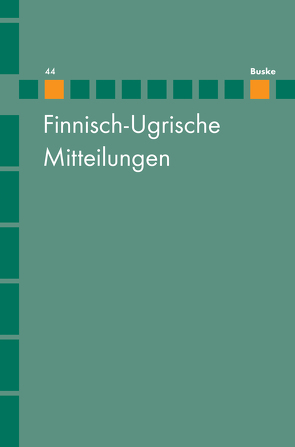
Josefina Budzisch – Ulrike Kahrs (Hamburg): Cardinal directions in Selkup
The paper deals with the denotations of the main cardinal points in Selkup, taking all three main dialect groups (Northern, Central and Southern) into account. The naming of cardinal points is not well studied for Selkup, there is a lack of analysis of the underlying semantic structure of the denominations – this study aims at closing that research gap and giving some insights in environmental and cultural factors playing a role in expressing cardinal points. The paper has the following structure: after a brief introduction, the current state of research is presented as well as the data used in the study, the main section deals with the analysis of the underlying structures in denoting south/north and east/west. The findings are summarized in the final section.
Sándor Szeverényi – Katalin Sipőcz (Szeged): Formen der direkten und indirekten Redewiedergabe im Nganasanischen und im Mansischen
In this paper we examine reported speech constructions in two Uralic languages spoken in Siberia, Nganasan and Mansi. We also examine whether areal - primarily Russian - influence can be found in these structures. Indirect speech report with person shift are rare in the languages studied, but sporadic data can be found in the corpus for this type, too. In Mansi and Nganasan the direct reported speech structure is much more common than indirect. It can be observed that in languages the direct speech structure consisting of two clauses requires a complementizer resulting subordinating clauses. Such complementizers do not exis in these languages, although there are examples in our corpus for the adaption of the Russian conjunction što 'that'. In Mansi, in addition to the direct structure we can find indirect type without conjunction, and non-finit structure can be used, too. In Nganasan the reportative evidential serves as an alternative strategy.
Denys Teptiuk (Tartu): Quotative indexes in Erzya: a typological overview
In this paper, I provide a typological overview of quotative indexes, i.e. linguistic expression(s) encoding the presence of reported speech and thought, in contemporary Erzya. I focus on quotative strategies of different complexity attested in social media texts and classify the constructions according to their morphosyntactic structure and orientation. Furthermore, I take into account the possible connotations arising in the use of concrete strategies, such as the precision of reported discourse vis-à-vis original discourse, the reporter's evaluative connotations concerning reported information and ambiguity in the presentation of speech and thought. The results of this study show that the markers used in Erzya quotative indexes correspond to their uses in other related languages and reflect cross-linguistic tendencies in the use of semantically reportative and non-reportative markers in quotative constructions.
Aktualisiert: 2023-04-19
> findR *
Die Buchreihe Linguistische Arbeiten (LA) trägt wesentlich zur aktuellen linguistischen Theoriebildung im Bereich der allgemeinen und einzelsprachlichen Linguistik bei. Veröffentlicht werden hochwertige Arbeiten, die aktuelle Fragestellungen bearbeiten und die Entwicklung der Sprachwissenschaft, synchron oder diachron, empirisch oder theoretisch orientiert, vorantreiben.
Aktualisiert: 2023-03-30
> findR *
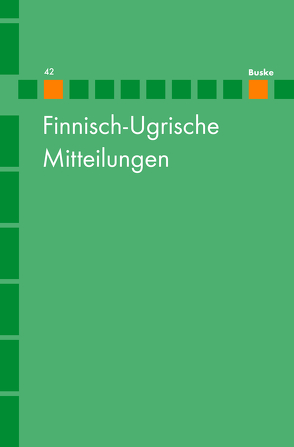
"Originalia:
Däbritz, Chriss Lasse: Zur Syntax von Topiks in nordchantischen Dialekten
De Smit, Merlijn: Fishing in troubled waters: on the origin of Finnic saima-stems
Duray, Zsuzsa: “If you don’t speak the language, you’re excluded. You’re a tough one, so to say.” – Conceptions of being a Sámi today as reflected in interviews on language and identity with Sámi people in Enontekiö, Finland
Khanina, Olesya – Yuri Koryakov – Andrey Shluinsky: Enets in space and time: a case study in linguistic geography
Mus, Nikolett: The interrogative verb in Tundra Nenets
Nuorluoto, Jussi: Die Erschließung des frühen nordostslavischen Lautsystems und seiner Entwicklung anhand des altnordischen und finnisch-ugrischen Namenguts
Sipos, Mária: The nominalizer TAH I in four North Khanty dialects
Teptiuk, Denys: New Quotatives in Finnish and Estonian
Diskussion und Kritik:
Bartens, Hans-Hermann: Valijärvi, Riitta-Liisa – Lily Kahn: North Sámi. An Essential Grammar
Däbritz, Chris Lasse: Hans-Hermann Bartens: Tschuden und andere Feinde in der saamischen Erzähltradition. Folklore Fellows Communications, Band 312
Hasselblatt, Cornelius: Kalevipoeg. Pilteepos. I osa. Raamatu tegijad Toom Tragel, Raoul Annion, Marek Laimets. / Kalõvipoig. Võru kiilde ümbre pandnu‘ Kalla Urmas ja Hao Paul; II osa. Raamatu tegijad Jevgenia Dudin, Raoul Annion / Kalõvipoig. Võru kiilde ümbre pandnu‘ Kalla Urmas; III osa. Raamatu tegijad Ats Nukki, Raoul Annion / Kalõvipoig. Võru kiilde ümbre pandnu‘ Kalla Urmas
Berichte, Mitteilungen, Nachrichten:
Bethge, Christine: Fachinformationsdienst Finnisch-ugrische/uralische Sprachen, Literaturen und Kulturen – ein Projekt der Niedersächsischen Staats- und Universitätsbibliothek Göttingen (SUB
Göttingen)"
Aktualisiert: 2023-04-19
> findR *
Die Buchreihe Linguistische Arbeiten (LA) trägt wesentlich zur aktuellen linguistischen Theoriebildung im Bereich der allgemeinen und einzelsprachlichen Linguistik bei. Veröffentlicht werden hochwertige Arbeiten, die aktuelle Fragestellungen bearbeiten und die Entwicklung der Sprachwissenschaft, synchron oder diachron, empirisch oder theoretisch orientiert, vorantreiben.
Aktualisiert: 2023-03-27
> findR *
MEHR ANZEIGEN
Bücher zum Thema Finnougrische Sprachen
Sie suchen ein Buch über Finnougrische Sprachen? Bei Buch findr finden Sie eine große Auswahl Bücher zum
Thema Finnougrische Sprachen. Entdecken Sie neue Bücher oder Klassiker für Sie selbst oder zum Verschenken. Buch findr
hat zahlreiche Bücher zum Thema Finnougrische Sprachen im Sortiment. Nehmen Sie sich Zeit zum Stöbern und finden Sie das
passende Buch für Ihr Lesevergnügen. Stöbern Sie durch unser Angebot und finden Sie aus unserer großen Auswahl das
Buch, das Ihnen zusagt. Bei Buch findr finden Sie Romane, Ratgeber, wissenschaftliche und populärwissenschaftliche
Bücher uvm. Bestellen Sie Ihr Buch zum Thema Finnougrische Sprachen einfach online und lassen Sie es sich bequem nach
Hause schicken. Wir wünschen Ihnen schöne und entspannte Lesemomente mit Ihrem Buch.
Finnougrische Sprachen - Große Auswahl Bücher bei Buch findr
Bei uns finden Sie Bücher beliebter Autoren, Neuerscheinungen, Bestseller genauso wie alte Schätze. Bücher zum
Thema Finnougrische Sprachen, die Ihre Fantasie anregen und Bücher, die Sie weiterbilden und Ihnen wissenschaftliche
Fakten vermitteln. Ganz nach Ihrem Geschmack ist das passende Buch für Sie dabei. Finden Sie eine große Auswahl
Bücher verschiedenster Genres, Verlage, Autoren bei Buchfindr:
Sie haben viele Möglichkeiten bei Buch findr die passenden Bücher für Ihr Lesevergnügen zu entdecken. Nutzen Sie
unsere Suchfunktionen, um zu stöbern und für Sie interessante Bücher in den unterschiedlichen Genres und Kategorien
zu finden. Unter Finnougrische Sprachen und weitere Themen und Kategorien finden Sie schnell und einfach eine Auflistung
thematisch passender Bücher. Probieren Sie es aus, legen Sie jetzt los! Ihrem Lesevergnügen steht nichts im Wege.
Nutzen Sie die Vorteile Ihre Bücher online zu kaufen und bekommen Sie die bestellten Bücher schnell und bequem
zugestellt. Nehmen Sie sich die Zeit, online die Bücher Ihrer Wahl anzulesen, Buchempfehlungen und Rezensionen zu
studieren, Informationen zu Autoren zu lesen. Viel Spaß beim Lesen wünscht Ihnen das Team von Buchfindr.


